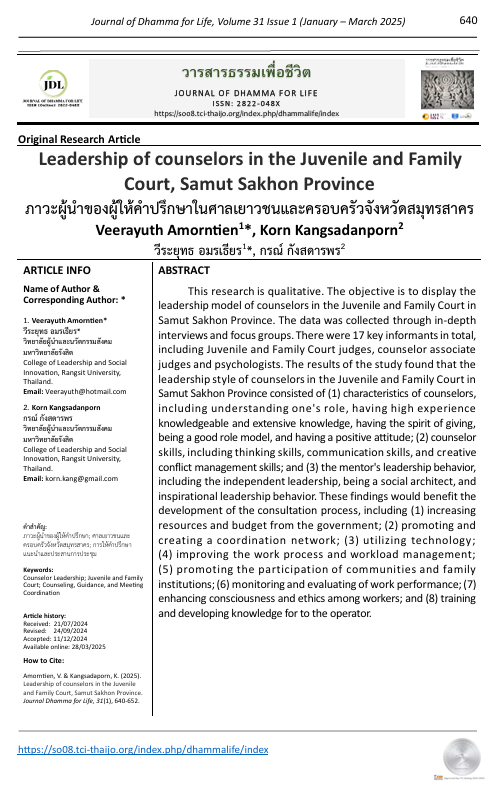Leadership of counselors in the Juvenile and Family Court, Samut Sakhon Province
Main Article Content
Abstract
This research is qualitative. The objective is to display the leadership model of counselors in the Juvenile and Family Court in Samut Sakhon Province. The data was collected through in-depth interviews and focus groups. There were 17 key informants in total, including Juvenile and Family Court judges, counselor associate judges and psychologists. The results of the study found that the leadership style of counselors in the Juvenile and Family Court in Samut Sakhon Province consisted of (1) characteristics of counselors, including understanding one's role, having high experience knowledgeable and extensive knowledge, having the spirit of giving, being a good role model, and having a positive attitude; (2) counselor skills, including thinking skills, communication skills, and creative conflict management skills; and (3) the mentor's leadership behavior, including the independent leadership, being a social architect, and inspirational leadership behavior. These findings would benefit the development of the consultation process, including (1) increasing resources and budget from the government; (2) promoting and creating a coordination network; (3) utilizing technology; (4) improving the work process and workload management; (5) promoting the participation of communities and family institutions; (6) monitoring and evaluating of work performance; (7) enhancing consciousness and ethics among workers; and (8) training and developing knowledge for to the operator.


